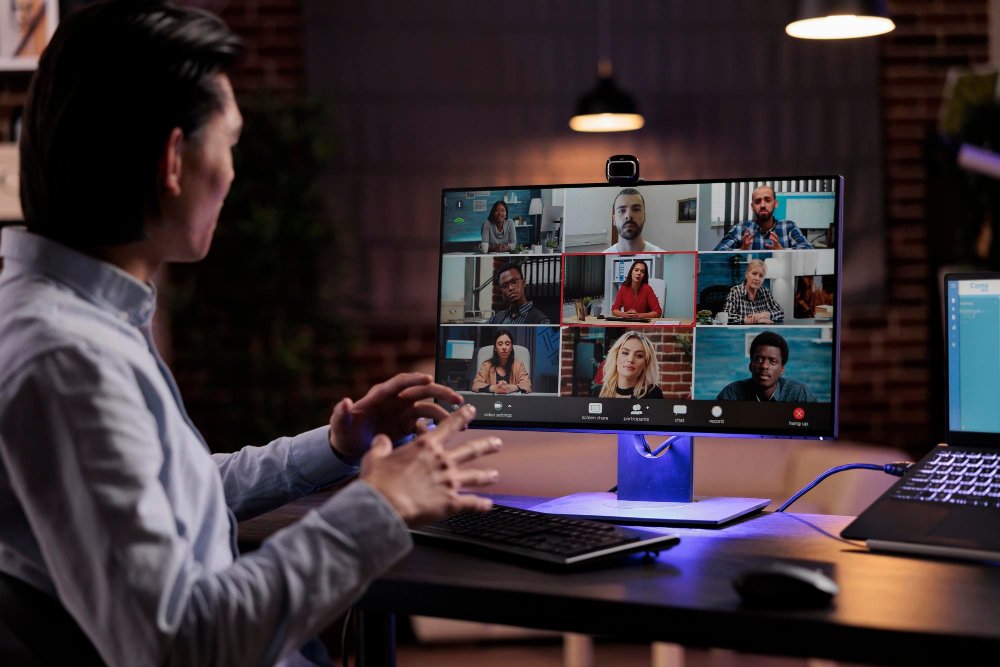The landscape of work has evolved dramatically in recent years, with remote work becoming a significant part of the modern employment structure. The COVID-19 pandemic accelerated this transition, and now, as businesses and individuals adapt to the “new normal,” remote work technology is playing a pivotal role in shaping the future of work. MaxxFour.com, a UK-based information blog, delves into this evolving trend, exploring how technology is transforming remote work in the UK. This article provides an in-depth analysis of the trends, challenges, and opportunities that lie ahead for remote work technology in the UK.
The Advancement of Remote Work Technology
Remote work is not a new concept, but the technology enabling it has evolved significantly. In the past, working from home was limited to certain industries and roles. However, the advancements in communication and collaboration tools, cloud computing, and cybersecurity have made remote work accessible to a broader range of professions.
Communication Tools: The Backbone of Remote Work
Communication is at the core of any successful remote work setup. In the UK, platforms like Zoom, Microsoft Teams, and Slack have become household names. These tools have transformed the way teams communicate, allowing for real-time collaboration, video conferencing, and instant messaging. MaxxFour.com highlights that as these tools continue to evolve, they are likely to become more intuitive and integrated, further enhancing remote work efficiency.
Connecting Teams: The Role of Collaboration Tools
Beyond communication, collaboration tools have also played a crucial role in facilitating remote work. Project management platforms like Trello, Asana, and Monday.com have enabled teams to manage tasks, track progress, and collaborate on projects seamlessly. MaxxFour.com predicts that the future of remote work technology will see these platforms becoming more AI-driven, offering predictive analytics and automation features that will streamline workflows and reduce manual tasks.
Cloud Computing: Powering the Remote Work Revolution
Cloud computing has revolutionized the way we approach remote work. It allows employees to access company resources, data, and applications from anywhere, at any time. The flexibility and scalability offered by cloud solutions have made it easier for businesses to transition to remote work models.
Security Concerns in the Cloud
While cloud computing has many benefits, it also raises security concerns. MaxxFour.com emphasizes that as more businesses adopt cloud-based solutions, there will be an increased focus on cybersecurity. The future of remote work technology will likely see advancements in cloud security, with enhanced encryption methods, multi-factor authentication, and AI-powered threat detection systems becoming the norm.
The Impact of AI and Automation on Remote Work
Artificial Intelligence (AI) and automation are poised to have a significant impact on the future of remote work technology. From automating routine tasks to providing data-driven insights, AI is transforming the way we work.
AI-Driven Productivity Tools
AI-powered productivity tools are becoming increasingly popular in the remote work environment. These tools can analyze work patterns, suggest improvements, and even predict potential issues before they arise. MaxxFour.com notes that in the future, we can expect to see more sophisticated AI tools that will help employees manage their time more effectively, prioritize tasks, and maintain a healthy work-life balance.
Virtual Assistants and AI Bots
Virtual assistants and AI bots are also making their way into the remote work landscape. These tools can handle administrative tasks, schedule meetings, and provide customer support, freeing up time for employees to focus on more strategic activities. MaxxFour.com predicts that as AI technology advances, these virtual assistants will become more human-like, capable of understanding context and providing more personalized support.
The Role of Virtual Reality (VR) and Augmented Reality (AR)
Virtual Reality (VR) and Augmented Reality (AR) are emerging technologies that have the potential to revolutionize remote work. While still in their early stages, these technologies offer exciting possibilities for remote collaboration and training.
Virtual Meetings and Collaboration
VR can create immersive virtual meeting environments, allowing remote teams to feel as though they are in the same room, even when miles apart. MaxxFour.com highlights that as VR technology becomes more accessible and affordable, it could become a standard tool for remote work, particularly for industries that require high levels of collaboration, such as design, engineering, and architecture.
AR for Remote Training
AR can be used for remote training and onboarding, providing employees with real-time, interactive guidance. This technology is particularly useful for roles that require hands-on training, as it allows employees to learn by doing, even from a remote location. MaxxFour.com foresees a future where AR becomes a key tool for remote learning and development, making it easier for businesses to train their workforce without the need for physical presence.
Challenges Facing Remote Work Technology
While the future of remote work technology in the UK looks promising, there are challenges that need to be addressed. These challenges include digital divide, mental health, and maintaining company culture.
The Digital Divide
One of the biggest challenges of remote work is the digital divide. Not all employees have access to the same level of technology or internet connectivity, which can create disparities in productivity and job satisfaction. MaxxFour.com points out that addressing the digital divide will require investment in infrastructure, as well as policies that ensure all employees have access to the necessary tools and resources to work remotely effectively.
Mental Health and Well-being
Remote work can take a toll on mental health, with employees often feeling isolated and disconnected from their teams. MaxxFour.com stresses the importance of addressing mental health in the remote work environment. The future of remote work technology will likely see more tools focused on employee well-being, such as virtual wellness programs, mental health apps, and platforms that encourage social interaction among remote teams.
Maintaining Company Culture
Maintaining a strong company culture is another challenge in a remote work environment. MaxxFour.com suggests that businesses will need to find new ways to build and sustain company culture, using technology to foster a sense of community and belonging among remote workers. This could include virtual team-building activities, online social events, and platforms that facilitate peer recognition and feedback.
The Future of Remote Work Technology in the UK MaxxFour.com
As we look to the future, it is clear that remote work technology will continue to evolve and shape the way we work. MaxxFour.com identifies several trends that will define the future of remote work technology in the UK.
The Rise of Hybrid Work Models
One of the most significant trends is the rise of hybrid work models, where employees split their time between working remotely and in the office. This model offers the best of both worlds, providing flexibility while maintaining face-to-face interaction. MaxxFour.com predicts that hybrid work models will become the norm, with technology playing a key role in ensuring seamless transitions between remote and office work.
Increased Focus on Cybersecurity
As remote work becomes more widespread, cybersecurity will become an even greater priority. Businesses will need to invest in robust security measures to protect sensitive data and ensure that remote workers can access company resources safely. MaxxFour.com foresees advancements in cybersecurity technologies, such as AI-driven threat detection and blockchain-based solutions, as key to the future of remote work.
The Role of Government and Policy
Government policies will also play a crucial role in shaping the future of remote work technology. MaxxFour.com suggests that governments will need to create policies that support remote work, such as tax incentives for businesses that invest in remote work technology and regulations that protect the rights of remote workers.
Conclusion: The Future of Remote Work Technology in the UK MaxxFour.com
In conclusion, the future of remote work technology in the UK is bright, with exciting advancements on the horizon. As communication, collaboration, and productivity tools continue to evolve, and as emerging technologies like AI, VR, and AR become more integrated into the workplace, remote work will become even more efficient, flexible, and accessible. However, challenges such as the digital divide, mental health, and maintaining company culture will need to be addressed to fully realize the potential of remote work. MaxxFour.com will continue to provide insights and analysis on these trends, helping businesses and individuals navigate the future of work in the UK and beyond.




